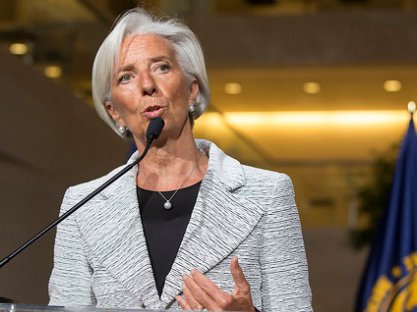On October 22, Argentina will hold a presidential election, with the winner taking office December 10. He or she will be confronted with a dire economic situation.
What will the new president be working with? Annual inflation is running at 140 percent and accelerating; the gap in exchange rates between the “official” rate and those that escape government control exceeds 150 percent (Argentina has 20 different exchange rates). And the central bank has hardly any freely usable reserves left.
Five candidates are competing to take the helm of this listing ship. Yet, according to the result of the primary elections on August 13, only three have a real chance of winning the contest: Javier Milei (a self-proclaimed “anarcho-capitalist”); Sergio Massa (the current minister of economy) and Patricia Bullrich (a former security minister with a hawkish profile). Each collected about 30 percent of the votes cast in the primary elections.
According to recent polls, it is unlikely that any of the three candidates will reach the threshold to avoid a runoff: that is, more than 45 percent of the vote outright, or more than 40 percent with a 10-point lead on the second-place candidate. Hence, a ballotage (to be held on November 19) may be necessary.
Milei is the front-runner. He received 30 percent of the primary election vote, but polls predict that he may receive about 35 percent this time. He has an unfettered “faith” in markets and a very colourful personality. He claims not to have brushed his hair since he was 13 (he is 52) and lives with five mastiffs, all named after famous liberal economists and all cloned from a deceased mastiff with whom Milei apparently still communicates. His economic proposals are equally outlandish.
Wielding a chainsaw as he campaigns, Milei vows to cut public spending by at least 14 percent of GDP within his first year of government. He also promises to “blow up” the central bank and dollarize the economy by exchanging all pesos in circulation for US dollars. He argues that stripping the country of its currency, the peso, would prevent Argentina’s leaders from financing extravagant fiscal policies. Politicians, Milei argues, would then be forced to live within the country’s means.
This argument doesn’t hold up. Dollarization would not guarantee that Argentine politicians embrace fiscal discipline. They could still borrow and issue IOUs (quasi-monies), as they did during the “convertibility” regime from 1991 to 2001. But an even more pressing problem for Milei’s dollarization plan is that he will find no hard currency reserves in the central bank. He brushes off the issue, arguing he could borrow enough dollars to buy back the pesos in circulation, although Goldman Sachs estimates that the overall price tag would be around US$35 billion.
The Perónist candidate, Massa, came out third from the primary elections, but he has a chance of coming second to Milei on October 22. Prolonging the economic agony, without precipitating a full-blown crisis before the runoff elections, is the best-case scenario if he is elected. Massa promises a national unity government and assures voters he will kill inflation. Yet inflation has soared since he was appointed minister of economy in July 2022, and scandals exposing obscene levels of government corruption have driven confidence in the government to record lows.
But Massa, a shrewd politician, campaigns as if he were not part of the government. In a recent article, the Financial Times warned that in judging him, readers should avoid making two errors: on the one hand, underestimating him, and on the other, believing everything he says. The International Monetary Fund (IMF) apparently missed that warning. After it sent US$7.5 billion in late August (a sum that allowed Argentina to stay current with the Fund), Massa engaged in a spending spiral, including tax breaks, handouts, and a freeze on gas and electricity rates — all of which the Fund had explicitly counselled against.
Bullrich, the candidate for the mainstream opposition coalition, Together for Change, came second in the primaries, but has been struggling for a place in the runoff. She has appointed Carlos Melconian, a well-known economist, as her future finance minister. He has shouldered most of the economic campaign talk and presented the blueprint of the economic plan that Bullrich would implement if elected. It envisages a 3.5 percent reduction in public spending (during the first year in office), underpinned by structural reforms to facilitate job creation and investment (45 percent of workers toil in the informal sector), and a road map leading to the unification of the exchange market.
While the three candidates would approach Argentina’s economic challenges differently, in all three scenarios the IMF will play a critical role. Since 1956, when Argentina joined the IMF, it has had 22 financing programs. Most have derailed due to a combination of fiscal deviations and poor design. The current program is no exception. What stands out, however, is the Fund’s readiness to turn a blind eye to the government’s fiscal and monetary slippages. Keeping the program alive has served the Fund’s creditor interest but has undermined its credibility (Argentina is its main debtor and the Fund’s benevolence kept the government current with its IMF obligations).
In a recent statement, the US Under Secretary for International Affairs, Jay Shambaugh, noted that “the IMF must be willing to walk away if a country will not take needed steps. It is essential that programs not just provide funding. The funding must serve a purpose and come with policies that return a country to stability.”
It was a thinly veiled criticism of the IMF’s tolerance for the creative accounting and broken promises of a government that has put Argentina, yet again, on the edge of the precipice.
This article was first published by The Banker.



